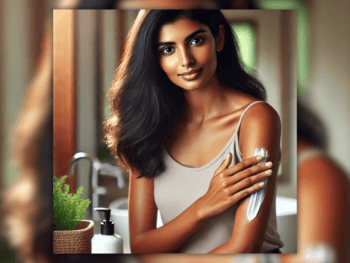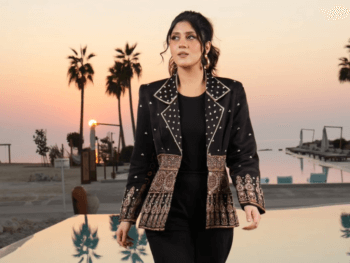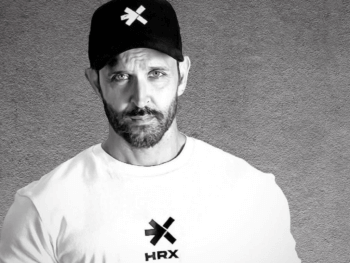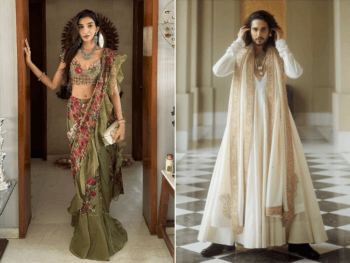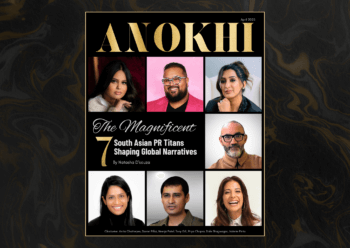Part Two: Exclusive Interview with ANOKHI MEDIA Founder & CEO Raj Girn
Jul 06, 2015

Raj Girn In The Raw
Part Two: The Entrepreneur
To conclude our two-part exclusive interview, I sat down with ANOKHI MEDIA's founder and CEO to chat about her as an entrepreneur.
*For Part One of our exclusive interview click here.
When someone is ambitiously starting their own business, regardless of what that business is, it’s a 24-hour-a-day commitment to get it off the ground. As a single mother, were there times during ANOKHI MEDIA’s early years when you felt you were compromising your role as a mother due to the attention you were giving your business?
That’s quite the gargantuan question (Laughs). (Pause) I can’t possibly answer with a simple “yes” or “no” answer, as it wouldn’t tell the story from the correct perspective as I’ve lived and experienced it. And, it wouldn’t do justice to all of those people out there, who like me, have had to juggle two of the most important roles they will ever play in the workforce and homestead. So please bear with me as I endeavor to go through this one as explanatorily but as succinctly as I can.
Okay.
Any entrepreneur who is a principle owner, who thinks their business isn’t going to be a 24-hour commitment at almost all stages of their ownership and not just at the startup phase, is in for a rude awakening. It’s difficult enough to succeed even if it’s the only thing you do in your life, let alone if you come at it with a part-time attitude, which compounds that dynamic a gazillion times over. Plus, you’ll more likely end up producing a suboptimal, if not failed, enterprise, albeit time commitment alone doesn’t guarantee success.
Speaking from a lifetime of entrepreneurial experience — indirect (My parents were serial entrepreneurs who bought and sold small businesses throughout their lives) and direct (I opened a dental business with my then husband and post divorce, I founded ANOKHI MEDIA.) — if there is one absolute in this lifestyle’s bandwidth that I know with all of its insurmountable sea of variables, it’s that entrepreneurship is an all or nothing mindset if your goal is to be good at it; period.
Let me illustrate what I mean by referencing my experience with ANOKHI MEDIA. In the early days, between 2003 and 2007, I spent 50 per cent of my time outside of my full-time job as a registered dental hygienist, working this company. I hadn’t, at that stage, figured out if it was something I wanted to take on full bore since at that time it was a four-issues per year business that I was doing more as a creative outlet and as community service rather than with real business objectives in mind. Don’t ever do that, by the way, it’s a bad mindset to start a business. Of that 50 per cent of time expenditure, I’d spend 90 per cent of that time doing tasks like writing articles, shooting photography and hand delivering boxes of magazines to events, and 10 per cent of my time in business meetings, hustling. Once I went full-time into the business in 2007, until 2013, I spent 60 per cent of my time doing tasks, 30 per cent of my time developing/testing new ideas and 10 per cent of my time in meetings, hustling. From 2013 to the present, I spend 50 per cent of my time in business meetings hustling, 30% in developing/testing new ideas and 20% in doing tasks. My next goal is to increase the hustle by 20% and proportionately decrease doing tasks. The short form version of all of this (Laughs) is that time investment rarely changes; how the time is utilized is what does.
So, having lived around and in the entrepreneurship arena all of my life, I knew what I was going to be up against mostly, when I started the media company as it related to balancing the work-home ratio. So, from the very beginning, I curated my son’s life (he was three at the time) and my life accordingly because, even though I knew I wasn’t going to be with him 24/7, (and what working parent is?), I wasn’t going to let my boy suffer. As long as I was unequivocally clear and unflinching about that, I figured I had no need to feel that I wasn’t being the 111 per cent mother my son (and all children) deserved to have.
What did you do to accomplish this?
Firstly, I made a commitment, even before the divorce, that I wouldn’t leave the city my son’s father lived in until he hit eighteen (he just turned eighteen yesterday J), to ensure that their relationship wasn’t compromised in any manner.
Secondly, I made sure that both sets of grandparents (who also resided in the same city as me) never stopped being a part of my son’s life.
Thirdly, being the enigmatic A-type personality that I am, I customized a lifestyle for my son that allowed him to flow through school, extracurricular activities, family and alone time, like a well-oiled machine. During those times when I had to work around the clock or travel for business, there was always another family member around to keep my son’s schedule going unaffected. No matter what was going on in my life, I ensured that his was never disrupted and remained consistent, and I have NEVER compromised on that, ever! The schedule, albeit regimented, was always reviewed to allow for the changing needs and wants of my son, as well as my work commitments. I have always checked in with him to see what’s going on, knowing that, especially as a child, he was a quite the insular, loner type. That dialogue has been the cornerstone of our relationship and I have always encouraged it and relied on it to keep us connected.
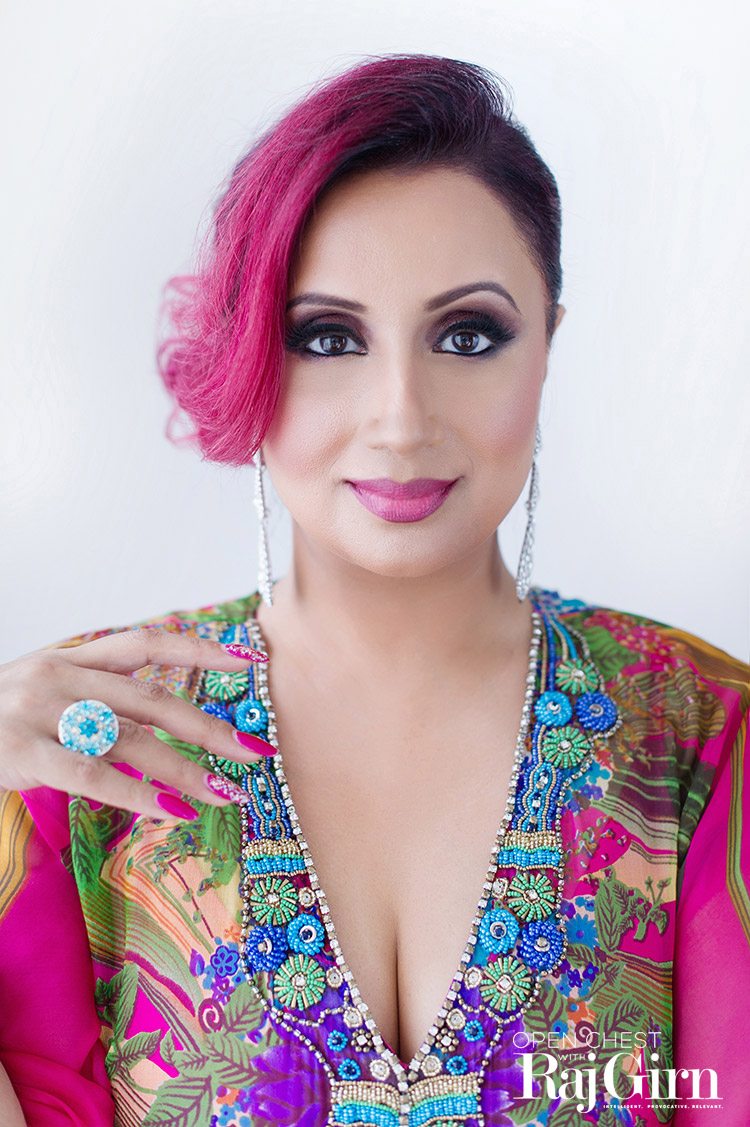
Have you ever felt guilty for not being around more while he was growing up?
I did at first, and for quite sometime thereafter, even though for the first decade, I ran the business from home (until finally I moved everyone from Mississauga, Canada to Toronto in 2012). I thought working from home would be an asset because I’d be available to my son whenever he needed me but it turned out that the opposite was true because the lack of a physical change between work and home environment, had me devoid of a switch off button from work which resulted in a more regimented mindset when I was with my son. My thought process was always that I must accomplish this, that and the other during my time with him to make sure all the items were checked off the list. In hindsight, I should have moved my work environment out of my home many years earlier so I could shut off from work easier and be available for my son more as his mother rather than his executive assistant.
Have you ever spoken to him about this to see how he saw things? Because maybe you’re being harder on yourself than you should be.
I’m embarrassed to say this but it wasn’t until I began answering these questions that I approached my son to ask him his opinion on the whole thing. I was so relieved to hear him say that he has always preferred me working from home because when I do go to the office, one or two days a week, he finds that when I come home I want to switch off from the world, including him, shutting my bedroom door in order to accomplish this. But when I’m home, I’m always in the family room working away with music playing in the background and chatting with him whenever he needs me. You have NO IDEA how important it is for me to hear him say this — that I got it right! I should have asked him years ago to save myself from the guilt.
At the beginning of your venture, did you ever feel fearful about going out on your own in seemingly one of the most difficult industries (being that media is such a fluid business model, or at least it has been during the last decade), and with such a niche target audience?
Like any wide-eyed, entrepreneur wearing rose-tinted glasses, I had no reservations or fears at the beginning because I was ignorant about the potential challenges. Although I wasn’t new to the entrepreneurship game, I was new to the media game, having only worked as a reporter prior to founding ANOKHI MEDIA. In hindsight, I can’t believe what an idiot I was (Laughs), as I had no idea about the dos and don’ts and the ins and outs of the media business. On the other hand, I was blessed by not knowing too much because institutionalized media models didn’t restrict my creative process because I had no clue what they were (Laughs), though I would have never admitted to that back then. As a result, a lot of our ideas have been considered quite innovative and courageous, comparatively speaking, and have helped in elevating the brand as a pioneer in crossover media.
Which, in your opinion, has been the most pioneering of your ideas to date?
The entire ANOKHI MEDIA portfolio (Laughs). This type of crossover media didn’t exist for the South Asian community when I founded this company.
Did you ever question your decision to start this company?
The only question I had in the beginning, was why hadn’t anyone before me thought about doing this. In 2002 (when I launched the magazine on November 19th), no other media company was targeting the western South Asian community from a dual, pop-cultural perspective, only from an insular cultural perspective like India/Pakistan news or wedding planning. As time went on, I realized why and began to question my decision to start and even continue as a media entrepreneur.
Why?
Because it was such a difficult business model to effect and more importantly, to sustain. In fact, no massive strides have occurred to effect change in a substantial manner even today, where western South Asian media is concerned, due to numerous dynamics working against it.
Explain.
In a nutshell, during the early years, the community was not on the mainstream radar, like it is today, so it was considered unchartered territory. Duly and in conjunction with the population numbers being considered too low to factor into media buying as a separate niche, no one was buying the South Asian community other than a few banks, insurance companies and small businesses within the community itself and this is still largely the case today outside of ANOKHI MEDIA which has been able to tap into the beauty, fashion and alcohol advertising sector.
The analytics just didn’t make sense from a business perspective for buyers, and to exasperate the challenge further, internal community segregation where religion and regions were concerned, created further confusion because corporates didn’t understand who South Asians were as there were/are so many subgroups that make up the whole. Then, factor in the challenge of knowing how to target us. They would (and still do), either apply ineffective mainstream metrics to a cultural niche market and/or use “Hinglish” (Hindi words written using the English alphabet) in their marketing copy assuming it would somehow make the community feel that they understand them or respected them more (Laughs). When in fact, for people well integrated, like me, we felt that they were irrelevant in capturing the essence of our lifestyle and even insulting in some cases with their ignorant stereotyping.
Funny thing is, is if they were to take a moment to delve deeper, statistics would show them that here in the West, there are two types of South Asians (if I were to really simplify things) — those born and raised in the West and those who have emigrated from the east. These two distinctive groups cannot be targeted with the same brushstroke. The former are not even being targeted in any relevant sense and the latter are being given “Hinglish” marketing campaigns when at least in Canada, statistics show that over 90 per cent of the immigrants that come to Canada from the Indian subcontinent speak enough English to enter the workforce immediately.
Have you ever wanted to throw in the towel?
Once, in 2009, when the economic decline led to a 30 per cent overall decrease in advertising dollars across all mainstream media. That had a debilitating effect on niche media, and where cultural niche media was concerned, we didn’t even factor into the buying process.
So how did you survive?
I diversified my business model by developing other business opportunities to serve the bottom line that still showcased my community, like our annual awards show for example, and it paid off as we did and have since, been able to secure indelible relationships with some of the world’s most recognizable brands like Diageo and L’Oreal.
What about when online, mobile and social media began taking a huge chunk out of the consumer’s mindshare, what did you do to combat that?
In the fall of 2014, the data coming back to me showed that the print magazine business model was not working sufficiently enough to justify its continuation. And paywalls, even the walled-garden approach, weren’t as successful with my demographic as they had been with the mainstream community.
Why do you think that is?
Today’s consumption culture has people accustomed to getting free content in real-time from multiple sources that traditional media models simply cannot compete with.
So what have you done to sustain your market share?
I went back to that ground zero that I talked about in part one of this interview, and called for a full throttle content/distribution/monetization data analysis of ANOKHI MEDIA, based on the initial findings, to understand what was going on and why. The results were very revealing. They showed a marked decline in the traditional side of the business and a substantial increase in the online/digital side of the business. This led to my making the most critical decision I have thus far made for the company — to action ANOKHI MEDIA to pivot to a fully digital multimedia enterprise. So, as of June 1 of this year, that’s exactly what has been initiated and with a ton of incredible integrated and cross-platform launches and partnerships on the horizon, (which I will share as we start rolling them out), suffice to say, I’m more excited about ANOKHI MEDIA’s potential today then I was when I launched the print magazine back in the fall of 2002.
Why?
Because opportunities are far more diverse, reachable and scalable in this arena, which translates to more opportunities to reach the demo and offer the client than ever before.

As a South Asian woman, did you ever feel that you weren’t being taken seriously by your South Asian male counterparts because you are a woman?
To be completely honest, I have absolutely no idea (Laughs). Because I have never looked at myself as being gender defined in the professional arena, I haven’t honed in on whether they have. What I have found though, is that men are intrigued by me and women are inspired by me. I don’t really know why (Pause) maybe because of my jump-off-the-cliff way of doing business — the you-only-know-if-you-try-it mindset (Laughs). It scares the s**t out of people (Laughs).
Seriously though, if I’m ever to succeed in what I’ve set my mind to do, knowing that no one else has yet found that magic formula to doing this optimally as of yet, I have no choice but to keep jumping off that cliff. Difference perhaps between me and other free-jumpers, is that I holster a parachute AND pitch a net (Laughs).
Our generation of South Asians is very much in tune with the reality that women in our community work and raise children. The older generation’s opinions and views don’t always align with this but do still hold a considerable presence in our lives by default of us having been brought up in their environment. Have you ever felt that other South Asians in business don’t take what you do seriously because you are a woman?
That’s a great question! (Pause) Maybe, but I chalk that up to believing that everyone has a right to have perspectives that resonate with them. The fact that I don’t judge people translates over into my psyche organically blocking out beliefs that don’t align with my core value system, therefore, it doesn’t infiltrate my being. And, for the record, NO ONE GETS TO JUDGE ME BUT GOD! With that said, if they do think of me in this ridiculously nonsensical, archaic gender bias manner, f**k them. Oops, I take that back. I’m non-judgmental remember! (Laughs).
Have you felt or heard opinions that you’re taking on too much being a businesswoman and a single mother?
In a word, “yes”, communicated to me by my mother on a daily basis (Laughs). But, as I shared in part one of this interview, I don’t know how to do something without spirit. It’s what guides my every move, and without it, I am nothing. So, if spirit says, “do”, I do. If it says, “don’t do”, I don’t do; simple. And when spirit does/does not do, its absolute.
Knowing what you know now, give me the top five caveats of advice you would give to your 29-year-old self, (the age you were when your marriage ended).
-
Get counseling to help you deal with your baggage as soon as you get divorced so it doesn’t take a decade to remove it as it did with me because I was too proud to ask for help.
-
Get back on the bike and start peddling the dating scene immediately after the divorce rather than wait three years, like I did, because heck, the benefits far outweigh the negatives.
-
Give men a fair chance because they really do want to get to know you and can only do so if you let them in. Don’t be impatient just because they are not as quick as your girlfriends to figure your s**t out. It doesn’t mean they don’t want to. And let’s be honest, you’re not as open with men as you are with your girlfriends.
-
Take a year off and travel the world with your son before embarking on a long-term commitment of any kind.
-
Don’t be so regimented with your son’s schedule. You don’t have to fill every moment. Let him figure some stuff out for himself.
Knowing what you know today, what are the top five pieces of advice you would give to your 32-year-old CEO self, (the year you started ANOKHI Magazine/ANOKHI MEDIA)?
-
Don’t work so hard; it’ll all get done.
-
Don’t be so hard on yourself, you’re gonna get there so stop and smell the roses now and again, especially when people compliment you.
-
Believe that you’re worth it and that your instincts are on point because they are.
-
Plan to get an office space by year two; you need to create a divide between your work and home environments.
-
Don’t run your son’s world like you do your business — nurture him instead, the way I have been doing these past four years.
Why OPEN CHEST? How did that name come about?
I’ve always been curious about what motivates people to do what they do, but I’ve never been interested in the question-answer format because I feel it’s too contrived and doesn’t really get to the heart of the matter like conversation does. OPEN CHEST came about from my desire to have no holds barred reveals like the opening of Pandora’s Box, so the name came about as a play on words, which also doubled as an innuendo (looks down at her ample bosom and laughs) because you know me, I’m a cheeky one! (Winks).
What is the allure about having conversations with someone for you?
The fact that you cannot predict what they are going to say or not say. And the challenge of getting them to reveal something about themselves that you cannot Google to find out about them. It gets me each and every time!
In your own words, describe OPEN CHEST?
Intelligent. Provocative. Relevant. (Laughs). The brand’s tagline (Smiles).
What differentiates OPEN CHEST from other celebrity interviews?
-
Me.
-
I don’t interview.
-
I have no biases or rules.
-
I’m as open with them as they are with me, if not more (Laughs).
The celebrity interviews arena is still seen as frivolous and vacuous, however, it completely dominates the news cycle here in the West. Explain to me why you feel interviewing celebs is still just as important as interviewing others who have made a name for themselves in more traditional professions (for example, medicine, philanthropy, etc.)?
Love this question (Smiles). First off, just because you interview a celebrity, doesn’t make it “frivolous and vacuous” unless the judger is what I call a “journo snob” — one who thinks that relevancy and importance in subject matter is based on their personal expectations rather than the expectations of the consumer. Secondly, celebrity interviews don’t just dominate the news cycle here in the West but are just as prevalent, if not more so, in India. Thirdly, I don’t judge, remember, so importance to me is a relative term not a defining one when it comes to interviewing or chatting with subjects.
I’ve exclusively focused the OPEN CHEST brand on celebrity conversations because, up until now, the brand has been about opening the Pandora’s Box of pop culture. Moving forward, however, and the main reason why I have agreed to do this interview at this juncture, is to encourage everyday people like you and me to reach out to me to chat on OPEN CHEST. What better way than being a subject yourself, right? (Smiles).

Raj Girn during her OCTV interview with noted Indian fashion designer Archana Kochchar (left) and acclaimed actor Rahul Khanna (right)
Who do you look to in terms of inspiration (for example, other journalists, interviewers, etc.) when it comes to celebrity/lifestyle interviewers?
I love the prep of Bill Meyers, the sarcasm of Jon Stewart, the intimacy of Barbara Walters and the charisma of Oprah.
Discuss why you felt OPEN CHEST needed the reboot/re-launch that started last month?
I wanted to increase the interactivity and engagement between my audience and me by providing a simple-to-navigate site with numerous ways to connect with me. The old site didn’t have that. Also, I have changed substantially as a person over the past four years since the first site was launched, so I felt I needed a site that would reflect who I am today and not she who I was when I started this journey.
OPEN CHEST, I see, has adopted the multi-platform ideology, where, other than openchest.com, your written interviews can be found in ANOKHI magazine online at anokhimedia.com/magazine and your video interviews can be found on YouTube at OPEN CHEST TV also. Explain to me the importance of delivering your message through varied mediums?
The fundamental premise of multimedia means that you have to offer multiple platforms. Gone are the days where people come to you exclusively by direct means. You must go to everywhere that they are consuming content in order to bring them to you. Other than the platforms you’ve mentioned above, OPEN CHEST, like ANOKHI MEDIA, is also on Facebook, Twitter, Instagram and there’s more to come as both brands are scaled out farther, wider and deeper.
What do you hope readers take away from the OPEN CHEST 2.0 site?
That I’ve succeeded in garnering their trust, therefore, their loyalty.
Any exciting plans that we can let our readers in on?
I have short-form content coming soon so look out for it as it’ll be more sensational in nature than the long-form, in depth stuff I currently do AND I want to interview anyone that has a story they feel people would resonate with, so hit me up at [email protected]. I’m waiting!

If a movie was made about you, who would you want to play you?
(Laughs) From the East, ideally the late Parveen Babi. I can’t think of a living actress off the top of my head. From the West, Monica Bellucci. My reason for these choices is that both of these women exude a beautifully organic and dichotic cocktail of power and vulnerability, like me (Smiles). And I’d like to be played by a totally gorgeous actress too, which both of them are, if I’m to be immortalized in film (Laughs).
Would the movie be a comedy or a drama?
A dramedy.
If you were having a dinner party and you could invite any four people, living or dead, who would you invite and why?
I have seven (Smiles). God to make sure I’m safe (Laughs); Buddha because of his spiritual knowledge of self; Einstein because I believe he was the closest to figuring out space and matter; Hitler because I want to study his psyche; Princess Diana because she was the epitome of rebellion; Ricky Gervais because he makes me laugh; my son because I finally want to end our discussion about spirituality (me) vs. science (him).
Who would you not invite and why?
Satan because his ego would make the dinner party all about him (Laughs).
Who would you invite if you had a last minute opening at the table?
A doctor, just in case (Laughs).
Whose celebrity closet would you like to raid in Bollywood and Hollywood?
Sonam Kapoor in Bollywood and Lady Gaga in Hollywood.
Whom would you be open to lending your stuff to in Bollywood and Hollywood?
No one, I only lend things to my friends and family.
If you had to change your gender identity (like Caitlyn Jenner) what male persona resonates with you.
Ohhh, I LOVE this question. Hmmmm. Liam Neeson, that’s all I have to say because I cannot look passed the behemoth crush I have on him. He epitomizes (from afar because I haven’t met him yet), everything I would want to be in my male avatar — tall, dark, handsome, cultured, talented, intelligent, powerful, rich, grounded, hawt and er, hawt (Laughs).
What celebrity would you be okay with, if he/she abruptly stopped and walked out of your interview?
I wouldn’t be okay with anyone doing that because fame and fortune doesn’t give you a hall pass to be rude. But, I would get over it in 10 seconds knowing what a jerk that person really is and that I was saved from wasting my time on telling the story of their ego. I’m not interested in THAT story.
What advice would you give to a woman who’s eager to venture out on her own and start her own business?
-
Research, research, research.
-
Formulate your business with the help of a diverse pool of expertise because no matter how brilliant you may be at what you do and what you know, you cannot do or know everything so get out of your own way STAT.
-
Raise funding from the get go if your goal is to exit because being undercapitalized will delay/compromise/halt your road to a successful exit.
-
Always be on top of the metrics and scale your business to gain/sustain a relevant market share.
-
Know that you’re NEVER done because your competitors are steps away from where you’re at, so always look for opportunities for that next consumer-driven idea, then plan and execute it, times forever.
-
Be fully vested. To be this way, you must shed all of those layers that stop you from full commitment (and marriage and motherhood doesn’t stop you from full commitment so don’t blindly follow the status quo mindset — you CAN have it all, you’ve just gotta figure out YOUR how-to). C’mon ladies, off with it; even your undies (figuratively speaking, LOL) — you were born naked and you’re gonna die naked, so why not live naked!
-
Give it up if it doesn’t serve you because you should only ever be journeying towards your greatness.
Any last words for our readers?
I hope you’ll tell me your story — soon!
Credits:
Photography by Agnes Kiesz / Pure Studios
Tunics by: Alia Qureshi / New York Fashion Designer
Makeup by: Gargi Patel / Vasanti Cosmetics
Hair by: Roz Mogani / Makeup Defined
Shoot Direction/Styling by: Daniel Pillai / Dapper Media
Copyright 2015: RG Media Enterprises Inc.
OCTV photography courtesy of Anmeco OptiMedia Communications Inc.
Hina P. Ansari
Author
Hina P. Ansari is a graduate from The University of Western Ontario (London, Ontario). Since then she has carved a successful career in Canada's national fashion-publishing world as the Entertainment/Photo Editor at FLARE Magazine, Canada's national fashion magazine. She was the first South Asian in...










































































